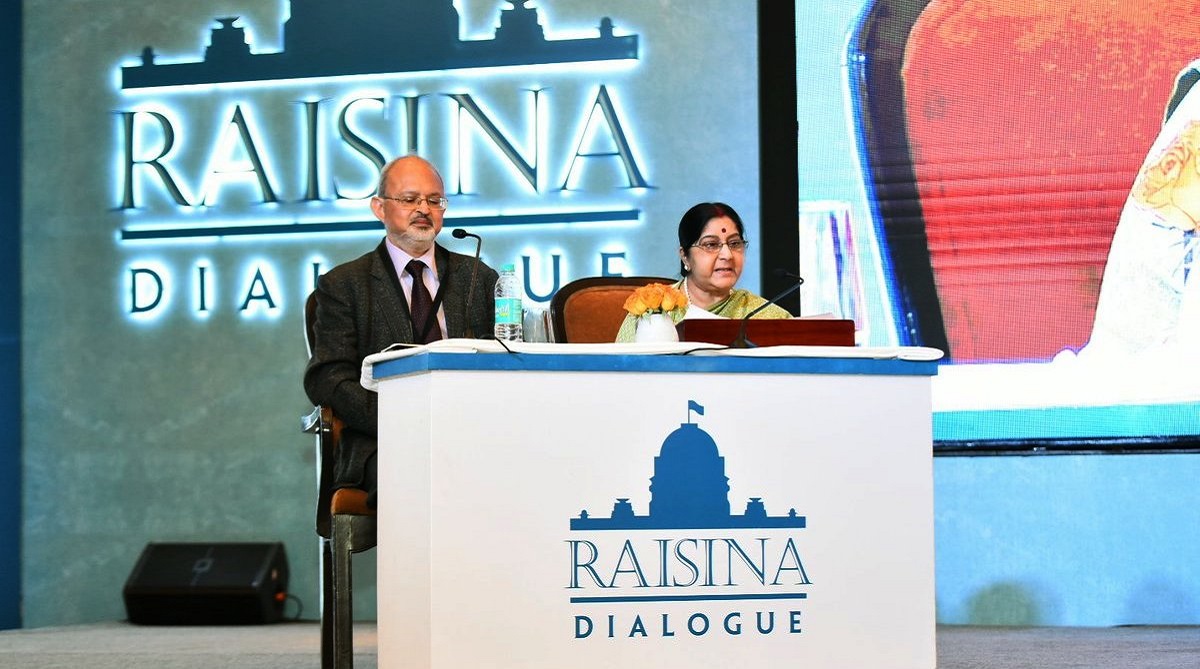Asserting that India’s commitment to upholding its sovereignty and territorial integrity remained unwavering, External Affairs Minister Sushma Swaraj, in a clear message to China and Pakistan, on Monday said unresolved border issues could be resolved bilaterally when approached in the right spirit and in an atmosphere free from violence and hostility.
Addressing the 4th Raisina Dialogue, a key foreign policy event organised by her ministry, she identified terrorism, the proliferation of weapons of mass destruction (WMDs), and climate change as three critical challenges facing the global community today.
Advertisement
No country was immune to the “existential threat” of terrorism and the need of the hour was to ensure zero tolerance towards it, she added.
Swaraj said, “There was a time when India would talk about terrorism and it would be treated as a law and order issue at many global platforms. Today, no country, big or small, is immune to the existential threat, particularly terrorism actively supported and sponsored by states.
In this digital era, the challenges are even greater with vulnerability to radicalisation,” she said.
Underlining that India was a proactive and constructive contributor to upholding international peace and security, the minister noted that regional initiatives should be based on transparency.
Observing that developing and underdeveloped nations were the “worst victims” of climate change, Swaraj regretted that these countries neither have the capacity nor the resources to meet the crisis.
“In today’s interconnected and interdependent world, foreign policy has a direct and visible impact. We have rebuilt India’s bridges with the neighbourhood. For us, transformation is not just a national agenda, but a global vision,” she said.
Swaraj said that India stood for a democratic and rules-based international order in which all nations should be treated as equal.
Talking about India’s contribution to neighbouring countries, she said, “We rebuilt India’s bridges literally and figuratively with our immediate and extended neighbourhood. We have also devoted a much higher amount of resources and attention to the neighbourhood for pushing next-generation regional connectivity and critical infrastructure at times of distress and need.”
On India’s partnership with France in launching the International Solar Alliance (ISA), Swaraj said, “this evidences the tremendous strides being made through collaboration. India and other countries alike must remember that the world is one family.”
“Our focus is on finding solutions to challenges before us through innovative approaches and dynamic partnerships. India’s own engagement with the world is rooted in its civilisational ethos which has at its heart co-existence and democratic values,” she added.











